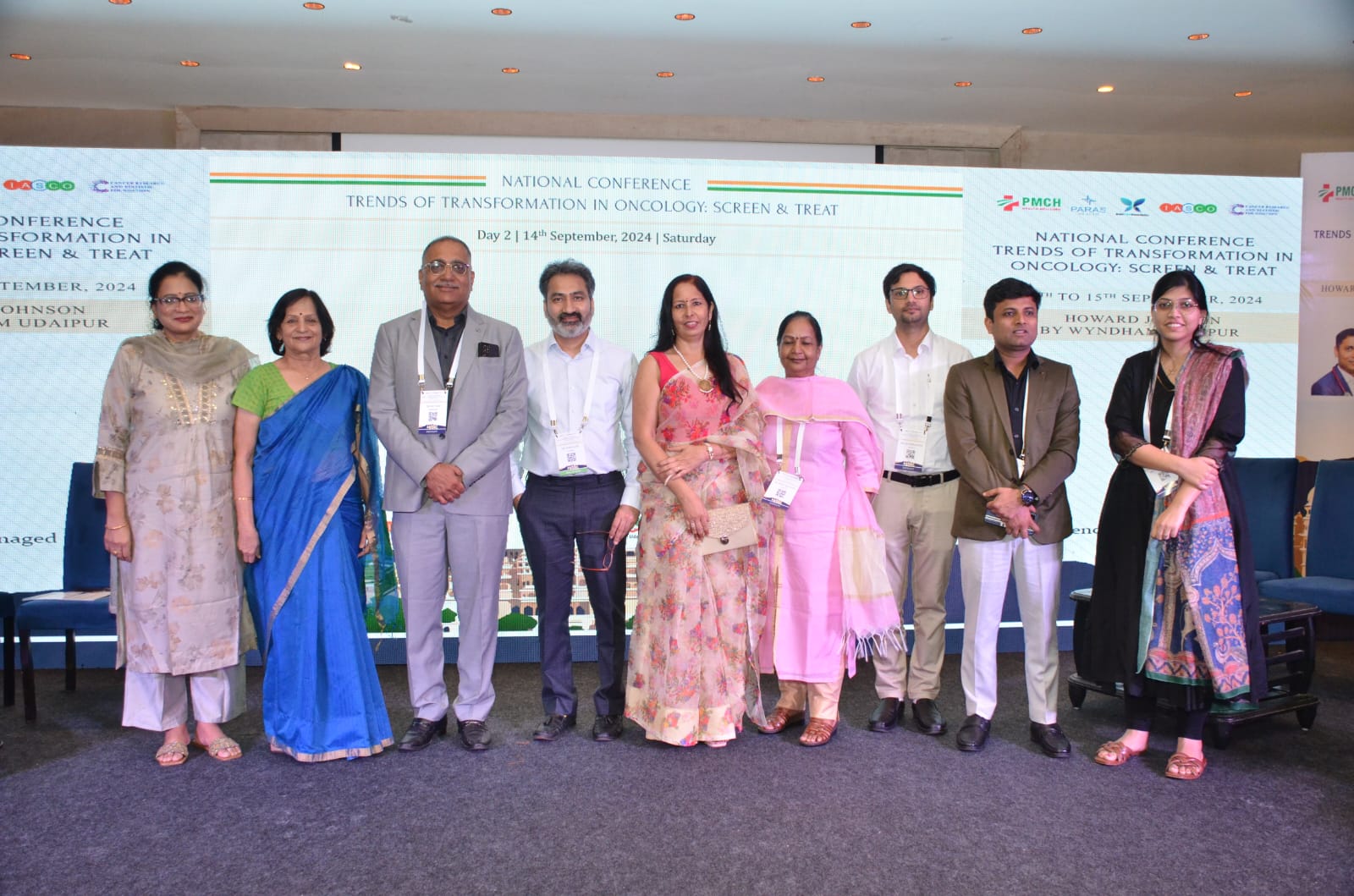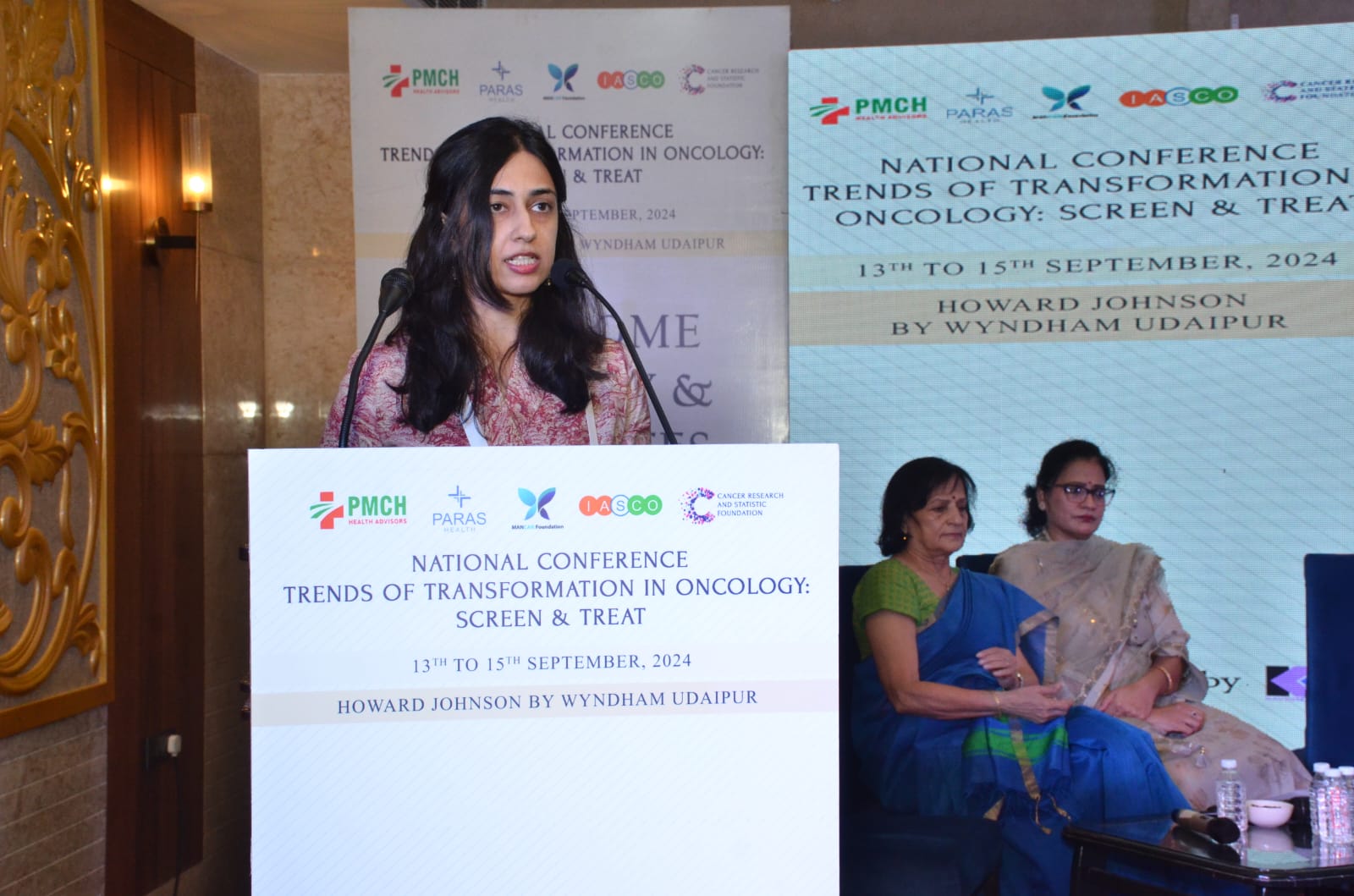### Awareness on Prostate and Breast Cancer is Essential
Modern Treatment Options Prove Beneficial

Udaipur: The second day of the ongoing fourth national conference, *Trends of Transformation in Oncology: Screen and Treat*, held in Lake City, focused on discussions around breast, colon, and prostate cancer. The third day will involve deliberations on cervical and ovarian cancer. PMCH, Paras Health are jointly organizing this conference, Men Can Foundation, IASCO, Cancer Research and Statistics, IMA Udaipur, API Udaipur, USS Udaipur, and UOGS Udaipur. Experts collectively emphasized that accurate diagnosis using advanced techniques aids in creating effective treatment plans, making it essential to expand the use of such technologies.

Program Director Dr. Manoj Mahajan shared that during a panel discussion, moderator Dr. D.G. Vijay highlighted that early detection and precise treatment of breast cancer in its primary stage is crucial for success. He added that breast cancer does not always equate to death, and patients can mitigate its severity by identifying early symptoms themselves. Moderator Dr. Nitin Singhal, while discussing colon cancer, emphasized the benefits of using modern technologies for its diagnosis. Colon cancer begins with polyps in the colon lining, and some polyps can eventually turn into cancer. Targeted therapy and chemotherapy are employed in colon cancer treatment.
Dr. Manoj Mahajan explained that neoadjuvant and adjuvant chemotherapies are two types of chemotherapy given for cancer treatment. Neoadjuvant chemotherapy is administered before primary treatment to shrink or halt tumors, making surgery easier and preventing cancer progression. It is used when the tumor is large or affects vital organs. Adjuvant chemotherapy is given after another treatment to reduce the risk of cancer recurrence or spreading. HER2-targeted therapy drugs can block or slow down the HER2 protein, helping control cancers with high HER2 levels, though these drugs are ineffective in cancers without elevated HER2 protein levels.
Dr. Vijay Patil, speaking about lung cancer, noted that its incidence rate increased from 6.62 per 100,000 in 1990 to 7.7 per 100,000 in 2019, with expectations of further rises in urban areas by 2025. Regular screening and timely treatment can lead to successful outcomes, and immunotherapy has proven effective for many patients with lung cancer.
Dr. Kshitij Domadia and Dr. Lalit Mohan Sharma, while discussing prostate cancer, pointed out that this type of cancer is typically asymptomatic and is mostly observed in men over 60. Approximately 33,000 to 42,000 new cases are reported each year, with expectations of this number rising to over 70,000 annually by 2040. The chances of completely curing prostate cancer in its first and second stages are as high as 95%. Robotic surgery, a modern technique with fewer side effects, is being effectively used in treatment today.
साभार :
© CopyRight Pressnote.in | A Avid Web Solutions Venture.






